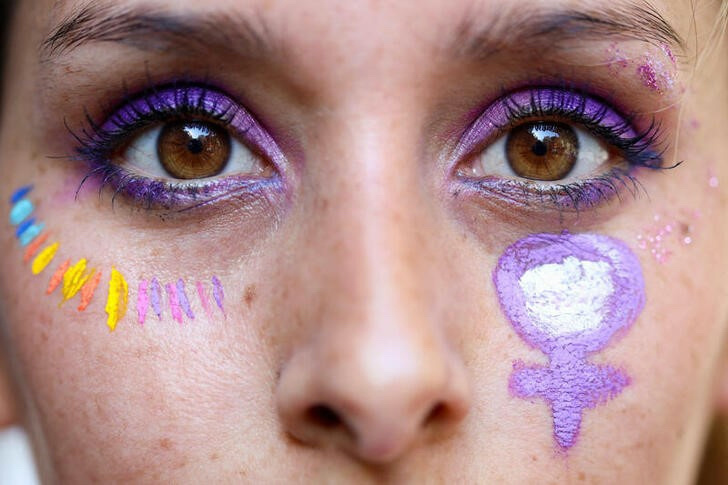Gender inequality has remained stagnant for a decade, according to research by the United Nations released on Monday, as cultural biases and pressures continue to hinder women’s empowerment and leave the world unlikely to meet the UN’s goal of gender parity by 2030.
Despite a surge in women’s rights groups and social movements like Time’s Up and MeToo in the United States, biased social norms and a broader human-development crisis heightened by COVID-19, when many women lost their income, have stalled progress on inequality.

A demonstrator looks on during a rally to mark the International Women’s Day in Buenos Aires, Argentina, on 8th March, 2023. PICTURE: Reuters/Cristina Sille
In its latest report, the United Nations Development Programme tracked the issue through its Gender Social Norms Index, which uses data from the international research programme World Values Survey.
The survey draws from data sets spanning 2010-2014 and 2017–2022 from countries and territories covering 85 per cent of the global population.
The latest analysis showed that almost nine out of 10 men and women hold fundamental biases against women and that the share of people with at least one bias has barely changed over the decade. In 38 of the surveyed countries the share of people with at least one bias decreased to just 84.6 per cent from 86.9 per cent.
The degree of improvement over time has been “disappointing,” said Heriberto Tapia, research and strategic partnership adviser at UNDP and co-author of the report.
The survey also noted that nearly half of the world’s people think that men make better political leaders, while 43 per cent think men are better business executives.
“We need to change the gender biases, the social norms, but the ultimate goal is to change the power relations between women and men, between people,” Aroa Santiago, gender specialist in inclusive economies at UNDP, told Reuters.
Though education has always been hailed as key for improving economic outcomes for women, the survey revealed the broken link between the education gap and income, with the average income gap at 39 per cent even in the 57 countries where adult women are more educated than men.
More direct harm to women’s wellbeing could be seen in views on violence, with more than one out of every four people believing it was justified for a man to beat his wife, the UNDP said.






